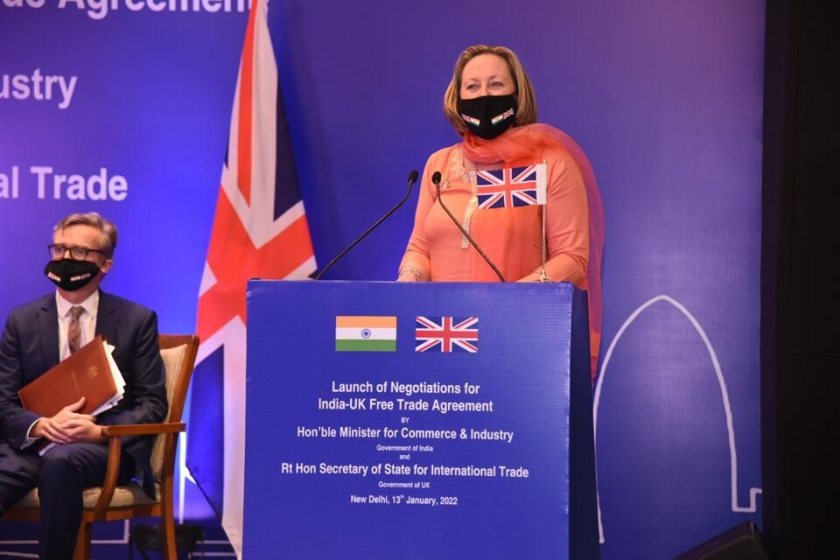
The UK and India has launched negotiations on a free trade agreement, with trade analysts expecting a boost in UK exports of dairy, sheepmeat and whisky to the country.
International Trade Secretary Anne-Marie Trevelyan met with her Indian counterpart to formally start talks on a post-Brexit trade deal.
India, one of the world’s biggest and fastest-growing economies, has a growing middle class, forecast to increase to a quarter of a billion consumers by 2050.
The country is also set to become the world’s third biggest economy by 2050, with a bigger population than the US and EU combined.
According to the UK government, an FTA with India has the potential to almost double UK exports and boost total trade by as much as £28bn a year by 2035.
The UK wants an agreement that slashes barriers to doing business with India’s £2 trillion economy and market of 1.4 billion consumers, including cutting tariffs on exports, such as whisky.
Currently, metals and machinery are main UK goods that are exported to India, with refined oil and clothing the main UK imports from India.
Agriculture accounted for 16% of India’s economy in 2019, after the industrial sector which makes the highest contribution to India’s GDP at almost 25%.
In contrast, agriculture comprises just 0.6% of the UK economy, with the services sector the main contributor at over 70%.
Analysing the deal's potential benefits, the AHDB says, as things stand, there is hardly any agricultural trade between the UK and India.
"The current tariff rates will be a key factor here with India’s average tariff rates on most products, including food, higher than those for the UK," AHDB's senior analyst, Amandeep Kaur Purewal said.
"India also has a higher number of non-tariff measures, such as sanitary and phytosanitary conditions (SPS), quantitative restrictions and safeguards compared to the UK.
"And so an FTA between the UK and India could provide beneficial for the UK if there is some relaxation on this front from India."
Sanitary and phytosanitary standards are complex and challenging for agri-food firms wishing to export to India, according to AHDB's analysis.
The FTA will seek to enhance access for agri-food by increasing transparency of SPS standards in order to help UK firms trade more easily.
From a UK perspective, the levy group says there is potential in the Indian market for value added dairy products such as cheese.
Although fresh dairy products are more widely consumed in India, there has been growth in demand for value added dairy products.
While demand for higher value dairy products is at a relatively low base, the growing middle class and huge population in India provides opportunities.
There may also be some potential for UK sheepmeat exports to India. "At the end of 2018, India gave access to British sheep meat imports for the first time," Amandeep Kaur Purewal said.
"As with value added dairy products, although Indian sheep meat consumption is relatively low, there is opportunity for this market to grow."
